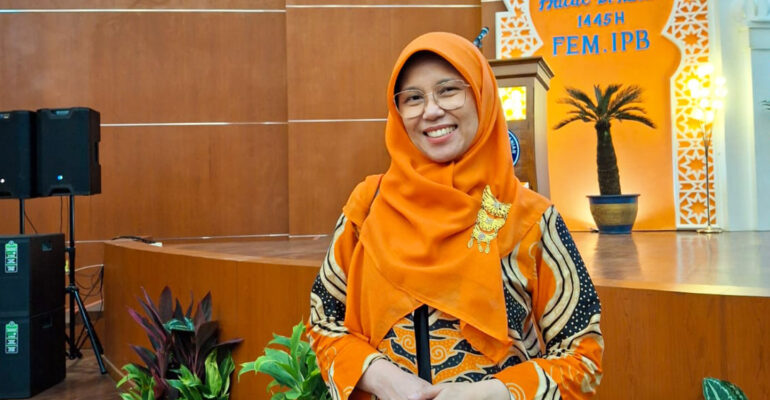IPB University Lecturer Gives Tips for Saving Money After Eid

Eid is often followed by large expenses that can exceed the budget. Another challenge that many people face is unexpected expenses or running out of funds, which can disrupt the family’s financial condition.
Dr Wita Juwita Ermawati, lecturer at the Department of Management, Faculty of Economics and Management (FEM) IPB University, provides tips on managing finances and saving after Eid.
To avoid financial problems after Eid, Dr Wita suggests that every family calculate the total expenses for Eid and check the current financial position.
“It is important to check whether there are financial items that are disrupted, savings that are used up, or even debts that arise,” she said.
“Saving again after Eid is important to restore our financial condition and remember our financial goals,” she said again.
Dr Wita revealed several steps to start saving post-Eid. First, identify your daily routine needs and short-, medium-, and long-term non-routine needs, such as children’s education costs, health costs, and vacations.
After that, each need must be prioritized according to its urgency and adjusted to the ability of income.
She also suggests making future financial targets, such as funds for marriage, worship, or investment. Adequate savings are essential to avoid debt, especially for emergency needs.
Dr Wita added that it is important to manage your budget well, using the 50-30-20 pattern. That is, 50 percent for basic needs, 30 percent for wants or debt installments, and 20 percent for savings.
If routine expenses are greater than income, she suggests reviewing unnecessary expenses and looking for additional income.
With discipline in managing finances, post-Lebaran financial problems can be minimized, and families can still have savings for the future. Annual financial evaluation is also important to ensure that the family’s financial condition remains good and becomes the basis for the following year’s financial planning. (dh) (IAAS/LAN)



